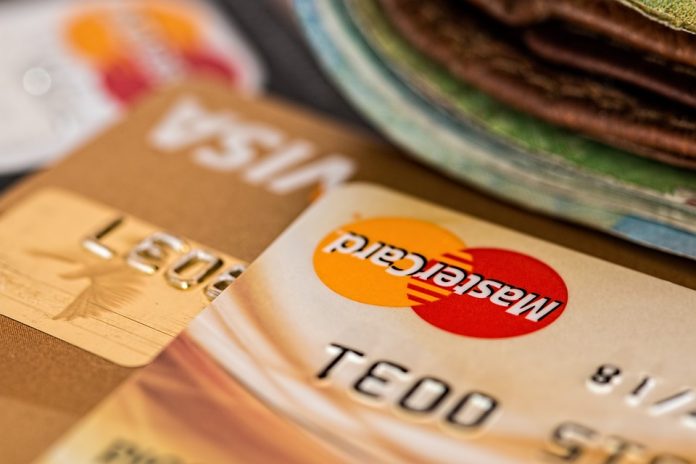Security issues are the most prominent thing when it comes to credit card payment processing. You will need to address this successfully along with your customer preferences as a business. This will raise the trust of your customers on your credit card processing system.
Ideally, most businesses take adequate steps to protect their money and customers from theft, but the emphasis lies mostly on protecting the physical goods. However, today since all business transactions are made online right from placing an order by a customer to making the payments, security concerns these days are more complex. Modern business establishments now need to ensure that:
• Both physical as well as their digital products are protected from theft
• There is no divulgence of sensitive information and digital data
• Selling products, especially digital products is safe
• They have a credit card processing system that is safe, secure and encrypted to prevent it from being hacked
Typically, security is a much more important factor to focus on to attract more customers towards your business. It is even more important than advertising that you offer free credit card processing because anything that is offered free comes with a usual and natural suspicion.
Therefore, companies must now employ proper security solutions for the credit card processing systems and at the same time keep on making all necessary changes to meet the needs and preferences of consumers. If you are into business, large or small, online or offline, here are a few things that you should know.
Looking Back
If you look a couple of years back, you will see that the security concerns for credit card processing are nothing new.
• In fact, it all started and gained significant momentum when the Payment Card Industry Data Security Standard or PCI DSS was introduced in 2004.
• Things then really got serious after the EMV fraud chargeback liability shift in October 2015.
This is when the merchants started to bear more responsibility for fraudulent credit card payment charges.
In the recent years, the EMV chip cards were one of the biggest disruptors in credit card payments. This has compelled the merchants to think about:
• The best security technology
• How the behaviors and preferences of the consumers have changed and
• The new payment types such as mobile wallets.
The consumers on the other hand have also become much more knowledgeable about such payment systems and take adequate proactive and protective measures to protect themselves from being duped by fraudulent companies.
In this day and time, you cannot expect a customer to wait for an extra moment when making any payments online. According to research it is found that more than 61% of consumers believe that when any EMV card needs extra time to process there is a need for some added security.
Looking ahead
Considering the current security concerns regarding payment systems of merchants and consumers along with the other alternative payment preferences, you will see that this has in turn created new opportunities for the businesses.
• It has helped them to connect with their customers in a better way and nurture long-term relationships and loyalty much more easily.
• With the changed preferences and concerns regarding credit card payment security the merchants now have to bear a bigger burden for chargebacks.
However, the merchants are not the only ones who are concerned about data privacy and payment security. Even the consumers these days are concerned about it and banks also step in to reassure them. They feel that they are as equally responsible for protecting them against credit card and debit card fraud just as the credit card companies are.
Chip enabled payment cards
According to recent research, more than 50% percent of the consumers who use some type of credit or debit card to make a purchase have experienced some type of fraud at some point in time. It is this surprising fact that has made them now more vigilant while using their credit cards and become more concerned about data security.
• It is this growing concern amongst the consumers regarding data security and their  responsibility that has resulted in the newer types of payments that the consumers prefer to use these days when they shop.
responsibility that has resulted in the newer types of payments that the consumers prefer to use these days when they shop.
• Another research has found that nearly two-thirds of the consumers consider that the traditional credit and debit cards are the least secure payment options.
These areas of concern of both the merchants and the consumers have given rise to the chip-enabled payment cards in place of the traditional credit cards and debit cards. This is the most secured form for making digital payments these days.
However, the consumers seem to have a slightly greater trust in the security of digital payments. More than 30% of consumers have admitted that digital payment methods are the most secure as compared to traditional and even the EMV cards.
Experts suggest that the most possible reasons for this are:
• Consumers are now taking matters more seriously than before
• They are now aware of the responsibility of keeping the software updated in their own hands
• They are now more inclined to use SSL sites and more secured payment gateways like PayPal
• They make it a point not to store their card info on a site and
• They are implementing a personal firewall.
What it means for modern businesses
This sense of personal responsibility amongst the consumers means that business owners now must change their concept of accepting credit card payments.
• To start with they must ensure EMV-enabled payments for all in-store purchases
• Secondly, they must consider the types of payments to be accepted in an online environment
• Thirdly, they must ensure that they meet the primary caveat of consumers using mobile payments so that they feel it is safe and secure to make a transaction.
All these considerations and changes will not only help the merchants but also the consumers on the whole, as far as security for credit card payments is concerned.


































